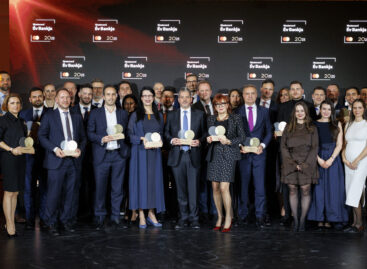Every third Hungarian card holder pays regularly with a mobile phone
Mastercard today published the results of its Bankcard Usage Habits and Attitudes research, in which it has been mapping and tracking the payment habits of the Hungarian urban population for 15 years now. Based on the latest results, the digitization of Hungarian users continued to increase, primarily in the field of mobile payments and online shopping, but for example foreign travel and spending also reached the pre-pandemic level.
In addition to the 97% domestic bank card penetration, the proportion of those who say that they pay with a bank card very often, several times a week, during their purchases in stores has continued to increase and reaches 63 percent, and the proportion of those who use the card on a daily basis is already 23%. Overall, it can be seen that 85% of bank customers pay with a bank card at least once a week. In addition, the group of people who do not use the card for payment at all has further decreased, their proportion is now only 3%. The development of the use of cards for online bill payments is one of the most obvious: today, 63% of those surveyed make these payments by card, and at the same time, the proportion of payments by check has decreased from 41% to 36%.
Related news
The 6 most important payment trends in 2026:
🎧 Hallgasd a cikket: Lejátszás Szünet Folytatás Leállítás Nyelv: Auto…
Read more >







